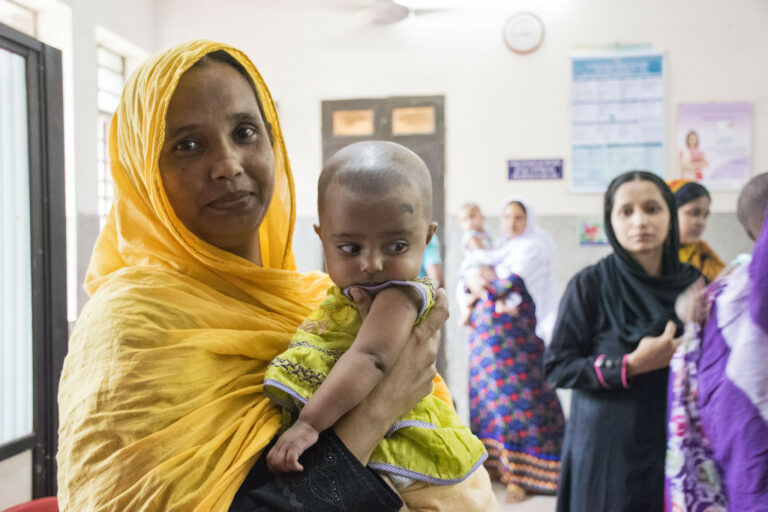Impacts of climate change on health in Bangladesh

Downloads
Bangladesh has made tremendous progress in improving the health outcomes of its population, from better infant and maternal health to overall healthy life expectancy. However, there is clear evidence that climate change is already negating some of these health gains, making it harder for the country to reduce poverty, improve prosperity, and pursue growth along a pathway compatible with net zero.
Because Bangladesh is one of the most climate-vulnerable countries in the world, understanding the links between climate change and health is essential for making the country climate-resilient. This policy brief explores how Bangladesh can make further progress on these issues.
Key points and recommendations
- Climate change is having, and will continue to have, repercussions on all sectors of Bangladesh’s economy and in turn, the health of the population.
- There are multiple direct and indirect pathways through which climate change affects human health in Bangladesh, for example through extreme weather events, heat-related and vector-borne diseases, and compromised food and water security.
- There is considerable scope for Bangladesh to take advantage of the health co-benefits of tackling climate change and air pollution, which can improve health outcomes and reduce pressure on health services.
- Extreme heat and air pollution are together particularly damaging for health, especially for people with pre-existing conditions. Focusing on reducing air pollution is therefore very important but will require cooperation and coordination across multiple ministries.
- Policies in Bangladesh have evolved in the last five decades, with the most recent policies such as the National Health Policy and the National Adaptation Plan explicitly including provisions to address climate change impacts on health.
- Bangladesh should increase its use of heat adaptation strategies that have been shown to work across the globe, including early warning systems, ensuring people have access to cooling, and changing working hours for those in high exposure sectors.
- Climate change makes it harder for people to improve their nutritional status. For Bangladesh, targeting food insecurity hotspots, in parallel with ensuring people have access to clean water and sanitation, can improve food security and nutrition.

